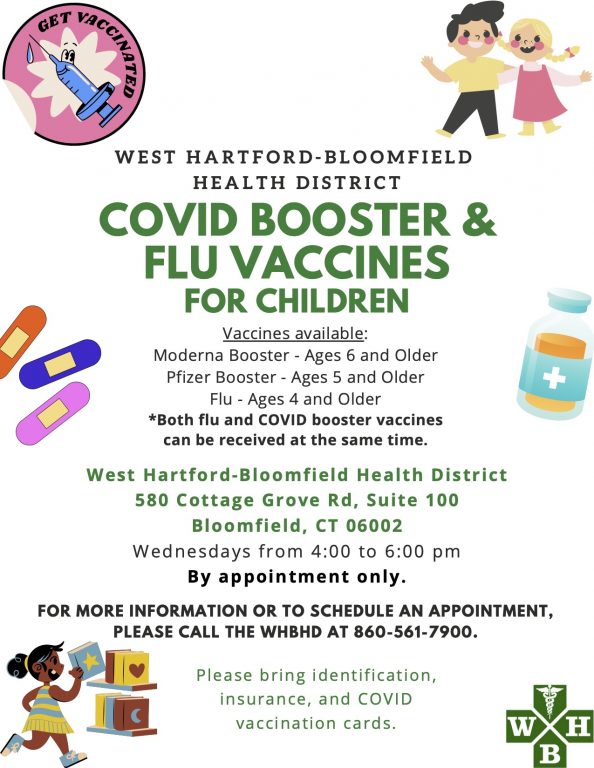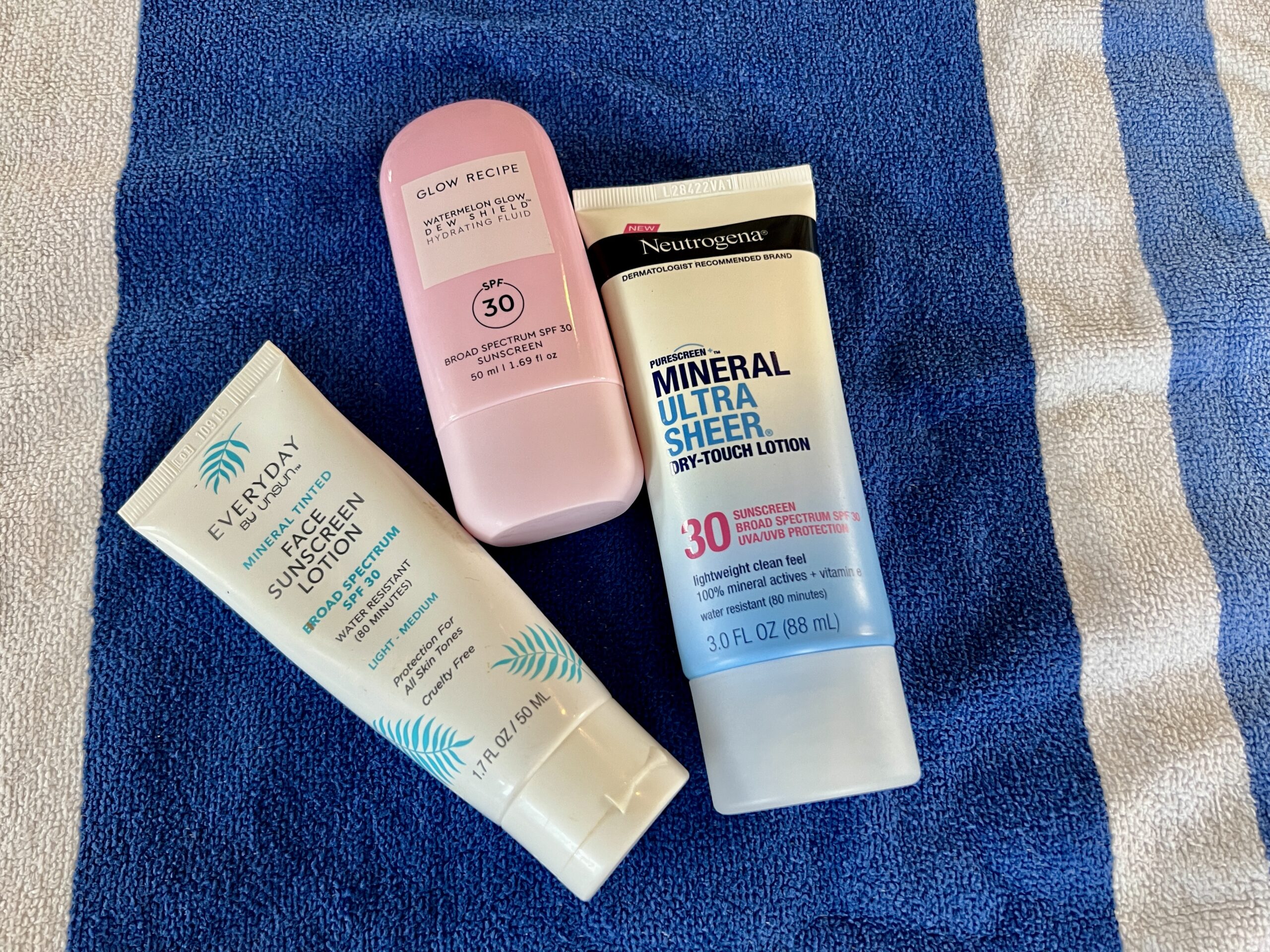West Hartford-Bloomfield Health District Provides Advice for Limiting Spread of RSV and Other Viruses

Audio By Carbonatix

The West Hartford-Bloomfield Health District recently held a vaccination clinic at Town Hall. Photo credit: Ronni Newton
Respiratory viruses are increasing in the community and the West Hartford-Bloomfield Health District has some advice, and has scheduled several vaccination clinics for flu and COVID-19 boosters.
By Ronni Newton
A variety of respiratory viruses have gotten an earlier than usual start this year and are spreading through the community, but there are measures people can take to have the best chance at staying healthy – like staying home when you are sick to avoid exposing others and wearing a mask if you have symptoms, said Megan Westcott, an epidemiologist with the West Hartford-Bloomfield Health District.
“We have seen an increase in respiratory viruses in the state of Connecticut,” Westcott said, particularly in schools and child care settings, in West Hartford as well as throughout the state, she said.
Multiple daycare providers have recently reached out to the Health District to report children testing negative for COVID-19, but exhibiting symptoms of the common cold as well as the more serious RSV (Respiratory Syncytial Virus) and influenza.
Since the beginning of October, which is earlier than usual, Westcott said, there has been a large increase in the number of reported cases of RSV, rhinoviruses and enteroviruses (colds), and human parainfluenza – the latter of which, even though it contains the word “influenza,” usually produces mild symptoms.
Influenza is also appearing in the community earlier than usual this year, Westcott said. And while the number of COVID-19 cases have dropped according to the state’s surveillance data, many people are relying on home tests that are never reported. Over the past seven days, according to Thursday’s report issued by the state, West Hartford had 44 reported COVID cases with a positivity rate of 13.9%
The Health District recommends that families and child care providers follow these recommendations to prevent the spread of respiratory viruses:
- Wash hands often, with soap and water, for at least 20 seconds, or use an alcohol-based sanitizer if soap and water is not available, especially before eating and after using the bathroom or blowing your nose.
- Avoid touching your mouth, eyes, and nose, and teach children to also follow this recommendation.
- Clean frequently touched surfaces such as toys, doorknobs, desks, etc. at least once a day.
- Avoid close contact with others and stay home when sick. Keep children home when sick.
- Cover coughs and sneezes. Using your elbow or a tissue to cover your mouth and nose is best.
“Wear a mask when you have symptoms, even if it’s not COVID,” Westcott added.
Children who do not have COVID and have mild cold symptoms such as a runny nose or congestion can go to school as long as they are feeling up to it, she said. The Health District said they are in alignment with the state Department of Public Health’s “test, mask, go” recommendation – which recommends that those who test negative can go to school provided they wear a mask.
Anyone with a fever should stay home. “Children should be excluded from school or daycare until they are fever free for 24 hours without fever-reducing medication,” Westcott said. Those who have gastrointestinal viruses should also stay home until symptoms of diarrhea or vomiting have been gone for at least 24 hours.
The Health District recommends that those who test positive for COVID-19 should stay home for five days from the onset of symptoms, and wear a mask a mask when around others for an additional five days after symptom onset.
RSV is highly contagious, and while symptoms in older children are generally mild, the virus can lead to complications for very young children as well as the elderly or those who are immunocompromised. RSV symptoms (see fact sheet below for additional information) may include cough, congestion, runny nose, and fever, and Westcott said parents of children who attend daycare who exhibit those symptoms should contact their pediatrician to be tested for RSV.
In 2020 and 2021, there were fewer incidents of influenza, but the season seems to be starting earlier this year, Westcott said. In 2019, the number of emergency visits due to flu peaked during February through April, she said.
“Protect yourself, get your flu shot,” said Westcott. The most prevalent strain thus far this year is Influenza A, but cases of Influenza B are also increasing. This year’s vaccine covers two strains of Influenza A and B, Westcott said, and is believed to be provide effective protection.
The Health District is offering two clinics during the month of November where flu shots as well as COVID-19 boosters can be received. Flu shots are available for anyone age 4 and up, and the clinics also have the bivalent Pfizer boosters for those ages 12 and up, and the Moderna bivalent booster for those ages 18 and up.
A clinic at the Elmwood Community Center will be held on Friday, Nov. 4, from 10 a.m. until noon. A clinic will also be held on Friday, Nov. 18 at the West Hartford Senior Center at 15 Starkel Road in Bishops Corner, from 10 a.m. until noon. No appointments are necessary.
Those attending should bring identification, their insurance card, and their COVID vaccination card. There is no charge for the COVID vaccine, and flu shots are covered by insurance. For those without insurance, the cost of a flu shot is $50 for the regular vaccine, and $75 for the high-dose flu shot offered to those 65 and up.
The Health District is also offering COVID booster and flu vaccination clinics for children at their offices (580 Cottage Grove Road, Suite 100, Bloomfield) on Wednesdays from 4-6 p.m. Appointments are required and can be made by calling 860-561-7900.

For additional information about RSV, see the PDF fact sheet below.
Like what you see here? Click here to subscribe to We-Ha’s newsletter so you’ll always be in the know about what’s happening in West Hartford! Click the blue button below to become a supporter of We-Ha.com and our efforts to continue producing quality journalism.
